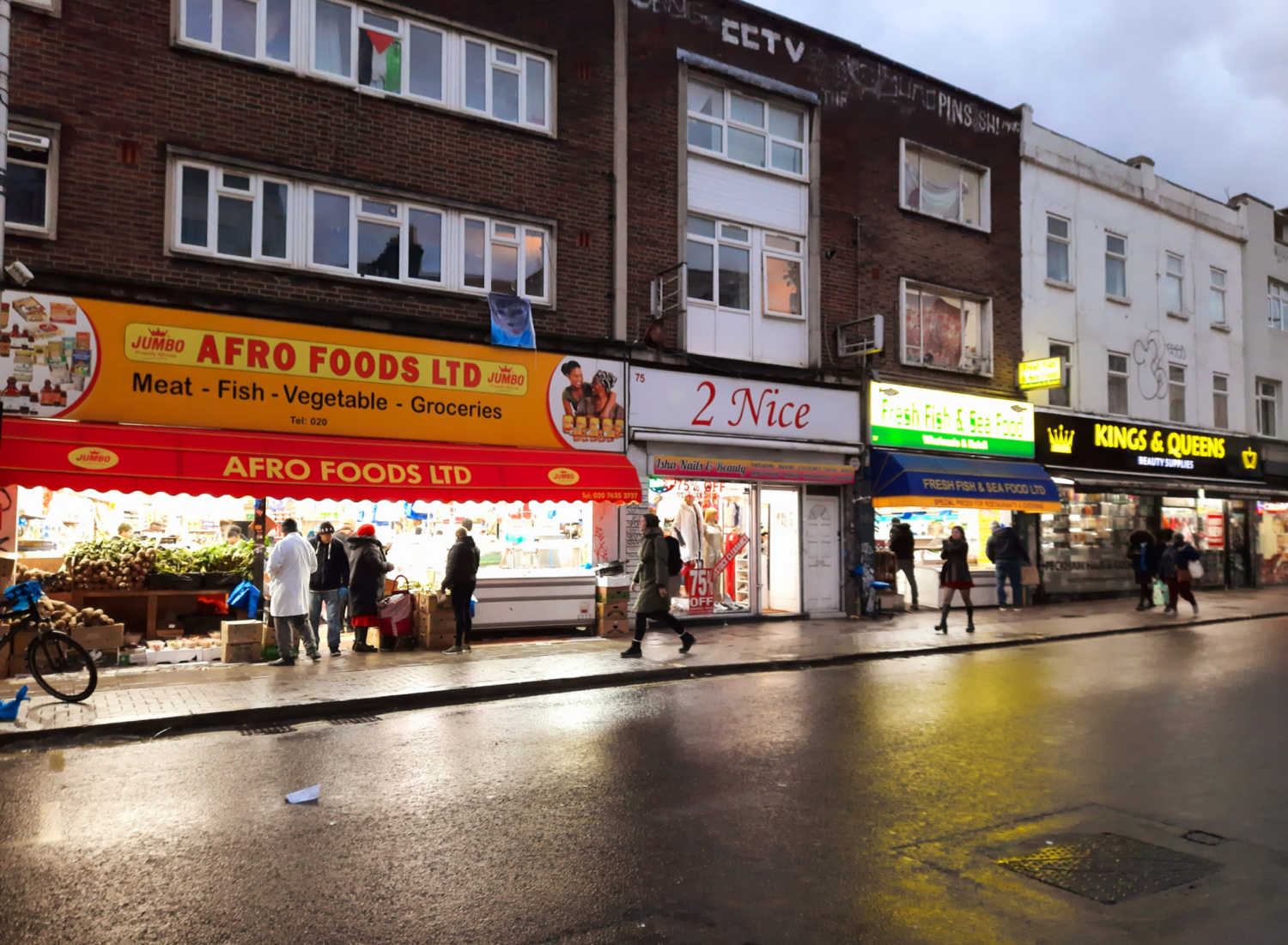In harmony
The recent riots demonstrated the need to revisit our concepts of identity and citizenship. Tariq Modood argues for a new multicultural nationalism
Well before the election, Keir Starmer made it clear that he wanted to move on from ‘culture wars’ and have a more constructive conversation about the challenges the country faces. Yet the ‘events, dear boy, events’ dimension of politics intervened in his first month, which saw the worst street disturbances, violent racism and Islamophobia for a generation. Starmer’s initial response in quelling the disorder and punishing the culprits was impressive – but all will agree a wider vision is necessary if we are to tackle some of the issues behind the riots. Here I think some historical context is helpful.
When it comes to post-immigration diversity and equality, there are a number of ways in which Britain, mainly under Labour governments, has taken a lead in Europe. One of these is racial equality legislation, starting in the 1960s and culminating in the Equality Act (2010) – the last act of the Gordon Brown government – which is the strongest and most extensive on our continent. Labour also took a lead in pushing back against the concept of cultural assimilation. Roy Jenkins, as Home Secretary in the 1960s, rejected the idea that the price of winning equal citizenship was to become a carbon copy of the cultural majority.
Nevertheless, the UK was for a long time too laissez-faire when it came to British national identity. Citizenship is not simply an abstract idea: each country has its own conception of itself and its citizens, largely shaped by its language(s), literature, customs, arts, sports, geography and history and including but not confined to institutions like monarchy, presidents and parliaments and struggles for democracy, equal treatment, a welfare state and so on.
It was New Labour that began to articulate a sense of progressive Britishness that all people, ethnic minorities and majorities alike, could share and identify with. This was partly in response to local tensions and a worry that communities were divided, with people from different communities leading ‘parallel lives’. A growing focus on human rights and the cosmopolitanism of the era also both fed into this new sense of a progressive identity.
But both Tony Blair and Gordon Brown were conscious that, between the local and the global, there needed to be a powerful, motivating sense of national identity if the country was to be successful in managing its growing diversity and in a globalised economy.
Growing up in London in the 1960s and becoming an adult in the 1970s, I sometimes felt that the idea of taking pride in one’s country was missing on the centre-left. It was as if they had accepted that the National Front and the rest of the far right should be allowed to appropriate our national flag and talk up their own definition of Britishness. Too often, the centre-left failed to offer a rival and better vision of being British.
It was ethnic minority intellectuals like Lord Bhikhu Parekh, Stuart Hall and Paul Gilroy who insisted in the 1980s that Britishness was not an empty concept. They contended that it was intimately tied up with racism, and that as a result we could not pursue racial equality without simultaneously critically remaking Britishness. My first book, published in 1992, was entitled Not Easy Being British. It argued that minority identity assertiveness like that we had seen among Muslims was integral to achieving equality, but that it was essential that such minority identities existed within a larger, inclusive national identity that we all could belong to.
In my view, the most significant public multiculturalist document published in Britain is the Parekh report, based on the findings of the Commission on Multi- Ethnic Britain (2000). It is a very wide-ranging report, but one of its central messages is that the inequalities and exclusions associated with racism, including material inequalities and disadvantages, could not be countered by merely materialist strategies but required ‘rethinking the national story’, our collective identity, in a plural way. Assimilationist, majoritarian nationalism was past its usefulness and had to be replaced by a new, plural kind of national identity.
In the last few years, a new anti-racist urgency has emerged, focused on remaking our public life and re-examining our shared past – encompassing not just recent migration, but also the legacy of slavery and Empire. Although this is essential, we must not reduce our multiethnic plurality to the black-white binary of the 1980s. This kind of binary thinking is not uncommon and can even be unconscious. For example, people often celebrate the ‘diversity’ of the English football team without noticing that it continues to only have white, black and white-black mixed-race players. This approach can lead us to think that colour-racism is the central challenge, despite all the evidence that the most prevalent forms of racialised hostility are Islamophobia and anti- Roma prejudice. Relatedly, it should not be the case that our equality, diversity and inclusion policies should place religious identity – as important to as many as is their colour identity – at the margins.
With this in mind, I would recommend that the Starmer Labour government explores the potential of promoting a multicultural nationalism. No state, even in a liberal democracy, is culturally neutral – all states support a certain language or languages, a religious calendar in respect of national holidays, the teaching of religion in schools and/or the funding of faith schools, certain arts, sports and leisure activities, and so on. Naturally enough, these languages, religion, arts, or sport will be those of the majority population. This is true even if no malign plan for domination is at work. Hence, it is important to distinguish when the institutional domination of the majority culture is present – and, moreover, when the majority culture has or may legitimately have normative value.
For example, the English language has a de facto dominant position in Britain that is manifested in many ways. Yet, one can also recognise that the position of English is of normative value, given the meaning that it has historically and today for the people of Britain. This normative primacy can be explained without having to bring in any domination concepts such as whiteness, or at the very least, without reducing it to questions of whiteness. For multiculturalism, however, it is a matter of extending this valued condition – of creating a society based on one’s cultural identity – to include minorities.
At a minimum, the predominance that the cultural majority enjoys in shaping the national culture, symbols, and institutions should not be exercised in a way which fails to accommodate minorities. The distinctive goal of multicultural nationalism is to allow people to hold, adapt, hyphenate, fuse, and create identities important to them in the context of their being not just unique individuals but members of sociocultural, ethno-racial, and ethnoreligious groups, as well as national ‘co-citizens’. National co-citizens care about their country, which is not just another place on the map or a workplace opportunity – it is where they belong; it is their country.
The general liberal and civic nationalist approach is to say that diversity requires a ‘thinning’ of the national culture so that minorities may feel included and do not feel that a ‘thick’ majoritarian culture is imposed on them. My own preference is for an additive approach to national culture, including, say, the place of Muslims. It does not, for example, require disestablishing the national church, the Church of England, but instead should bring other faiths like Islam and Judaism into a relationship with it. Nor does it require taking religious instruction and worship out of state schools – it should be available on a voluntary basis, for those religious groups which want it, knowing that not all groups will want it, in addition to religious education as a straightforward school subject, thus ensuring that commonality and diversity are both accommodated. These are two brief examples of not a thinning of the presence of religion in the constitution or state ceremonies or of religion in state schools, but of a pluralistic thickening, an addition to and remaking of the national public culture.
Multiculturalism, then, is built on national citizenship and national identity. This must be an inclusive national identity, which recognises minority identities and offers both institutional accommodation to minority ethno-religious needs and remakes the public space and the symbols of national identity so that all can have a sense of belonging. Such multicultural nationalism unites the concerns of some of those currently sympathetic to majoritarian nationalism and those who are pro-diversity and minority accommodationist. A brilliant recent example was the coronation of King Charles, which combined weird and wonderful ancient rituals, an Anglican church service which for the first time included women bishops and black Christians, including a gospel choir, but also involved both Lords and religious leaders from the key minority faiths. Besides the traditional oath to maintain the Church of England as an established Church, the Archbishop of Canterbury asked the King to “seek to foster an environment in which people of all faiths and beliefs may live freely”.
The racist and Islamophobic violence that broke out in August has immediate causes but also requires us to address the underlying issues and present a vision for a hopeful future. Multicultural nationalism may represent the political approach most likely to offer a feasible alternative rallying point to monocultural nationalism – which is the form that diversity scepticism will continue to take unless we can offer an alternative vision of Britishness to some of those currently inclined towards diversity-scepticism.

